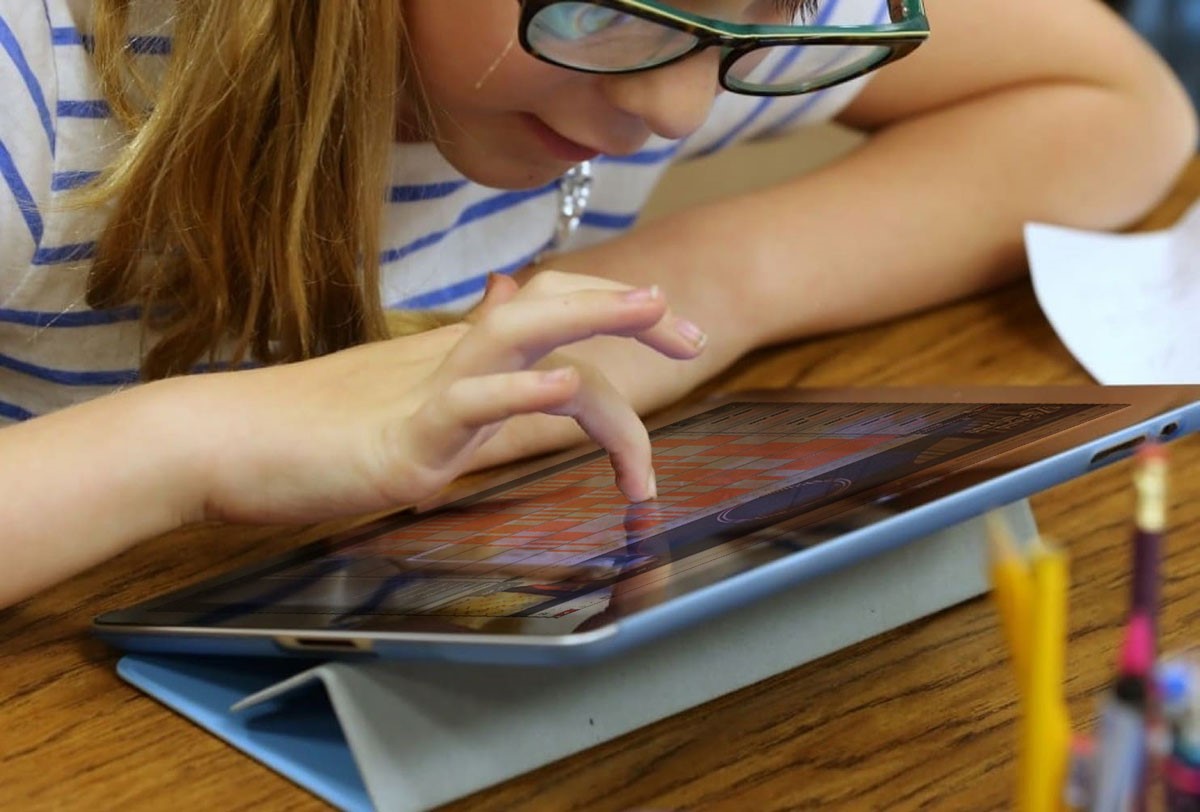
Whether you’re a teacher or parent looking for digital tools to educate your children in the current climate or just looking to add some musical flair to your student’s curriculum, there are numerous benefits to using music education apps to improve interest in musical instruments. Students can better listen to and understand music, compose it, share it, experiment with it and perfect it through the innovative and award-winning functionality of Sound Infusion.
Young children often have many extracurricular hobbies and music is an integral part of a child’s life, both inside and outside the classroom. Learning a musical instrument takes perseverance, drive and determination to maintain a practice regimen and improve musical aptitude. Children might give up on musical education as time goes on because of loss of interest or difficulties in learning an instrument, but educational apps can motivate your child or student to maintain their interest and learn an instrument.
Encouraging interest in Learning Music
Students can learn about the cultural, historical and geographical origins of instruments through Sound Infusion, where they can choose the instruments that interest them the most and create a composition with those instruments. The variety of musical instruments and the historicity and cultural heritage behind each instrument creates a platform for children to become interested in learning musical instruments.
Music education doesn’t exclusively refer to the learning of traditional instruments like piano, violin, cello, woodwind or brass instruments. Some students may not be as interested in traditional music education and prefer the unique instruments available to them on Sound Infusion from around the world. It is essential for students to gain opportunities to learn about the origins of instruments from all over the world, because this motivates not only interest in music education, but rather improves the social science, history and geography knowledge of each student.
By providing students with different music samples and the opportunity to create unique compositions, Sound Infusion encourages interest in learning music through an innovative production of culturally diverse instruments.

The Importance of Music Education
Music education carries great cultural and historical relevance and improves teamwork, coordination, memory, innovation, creativity and social skills. Modern music education has become an institution within the education curriculum of students across the world. As with the study of other artistic and creative endeavours, music education should begin at a young age.
According to the Australian Government, studies show that music can enhance brain function in children by stimulating the brain and resulting in improved brain structure with the formation of new neural connections. Studies also demonstrate that young children who engage in music education have improved speech development, learn to read more easily, increased brain development relating to language and reasoning, better sound recognition, and better information recall.
Music education also helps with the development of math skills through the learning of basic fractions, pattern recognition and problem solving skills. Studying music improves skills needed for advanced mathematics including spatial intelligence and the ability to create mental images. Recent studies show that learning music also betters working memory, multitasking, mental arithmetic, reading comprehension and attention spans in children. Children who learn music have increased coordination and improved motor skills.
Music often involves cooperation with other people, which leads to improved social and emotional skills, where children learn to work together as a team and develop a sense of empathy with others. Researchers have found that children who play music together are able to better tune into other people’s emotions. Children who take part in music develop higher levels of social cohesion and social understanding. They learn to develop social skills and friendships with other children as they interact and engage others in their age group to create music.
Children who engage with music have better self-confidence as playing a musical instrument or being involved in music education can build pride and self-worth through the process of improving on their abilities with a specific instrument achieving set goals. Students can feel very satisfied and develop self-esteem when they work towards goals, develop routines and practice self-discipline. Mastering a new piece of music composition leads to a sense of achievement, which reinforces a child’s perception of themselves.

Why Sound Infusion?
With the Sound Infusion app, students can learn about different instruments from around the world and create their own composition. Sound Infusion harmonises the music learning process with core elements of geography, history and social science by creating a unique learning space to explore different cultural aspects of music from a diverse range of global communities.
Share this Post



